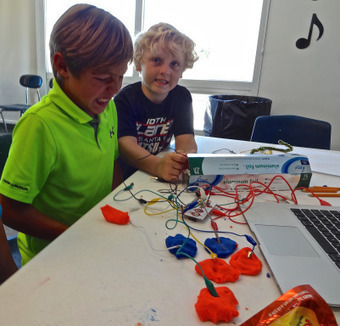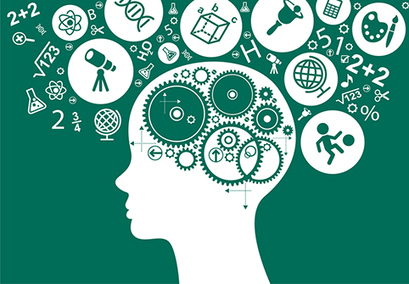Conclusion
Even though these weeks were considered a maker education summer camp, there was an expectation from the school and parents that the learning activities incorporated the expectations and rigors of a classroom environment. I could easily identify cross-curricular state and common core standards even though I never taught to THE standards. Never during the sessions were the young learners formally testing, asked to be quiet or sit still, or asked to finish quickly so we can move on. Yet, I believe each of the kids would say that they learned lots . . . . and had fun doing so.
Young makers are more capable than what people (adults) typically believe.
Instead, the making learning activities were structured to honor natural ways of learning along with developmentally appropriate practices. Sadly, it appears that some of these natural ways of learning were “conditioned” out of the young learners through more formalized education as I identified in my observations.
Incorporating making into a learning environment teaches lifelong learning skills such of perseverance, love of learning, working with others, and embracing challenges.
Learn more:
- https://gustmees.wordpress.com/2014/08/24/coding-a-new-trend-in-education-and-a-big-responsibility/
- http://www.scoop.it/t/21st-century-learning-and-teaching/?tag=carol+dweck
Via Gust MEES, Educational Peaks, Stephania Savva, Ph.D



 Your new post is loading...
Your new post is loading...











Young makers are more capable than what people (adults) typically believe.
Instead, the making learning activities were structured to honor natural ways of learning along with developmentally appropriate practices. Sadly, it appears that some of these natural ways of learning were “conditioned” out of the young learners through more formalized education as I identified in my observations.
Incorporating making into a learning environment teaches lifelong learning skills such of perseverance, love of learning, working with others, and embracing challenges.
Learn more:
- https://gustmees.wordpress.com/2014/08/20/maker-space-a-new-trend-in-education-and-a-big-responsibility/
- https://gustmees.wordpress.com/2014/08/24/coding-a-new-trend-in-education-and-a-big-responsibility/
- http://www.scoop.it/t/21st-century-learning-and-teaching/?tag=carol+dweck